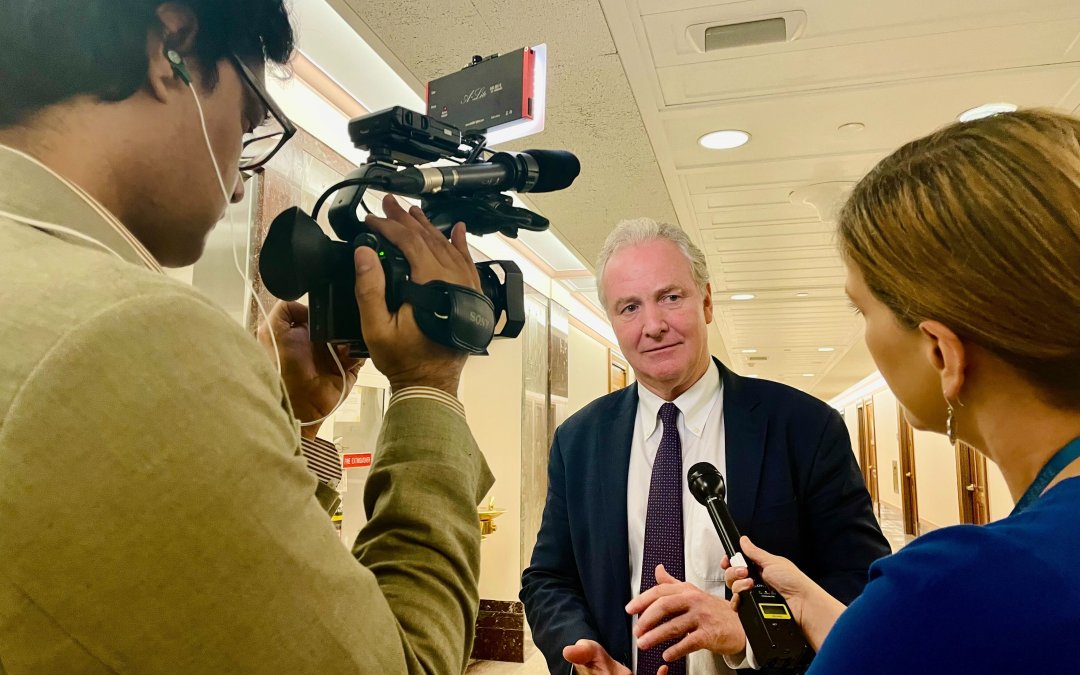WASHINGTON — The nature of United States diplomacy in the Korean Peninsula — and its spillover impact on American foreign policy in Ukraine, China and Israel — needs to change, experts told Senate Foreign Relations subcommittee members last Wednesday.
“Where we started negotiations with North Korea is not where they are today,” said Jenny Town, Senior Fellow at the Stimson Center. “We’re now watching this move into a new phase.”
The advisory hearing took place a week after Pvt. Travis King returned to the U.S. from North Korean custody, after King illegally crossed the Demilitarized Zone. King’s arrival temporarily eased intense negotiations between Pyongyang and Washington.
Though 2023 marks the 70th anniversary of the R.O.K.-U.S. alliance, one that U.S. Senate Majority Leader Chuck Schumer and a bipartisan delegation is currently trying to maintain in the East Asia region, “lasting peace on the Korean Peninsula remains elusive,” said chairman Sen. Chris Van Hollen (D-Md.). Lawmakers expressed concern on whether the decades-long U.S. approach — one that prioritized denuclearization and socioeconomic exchange to diminish North Korea’s authoritarian regime — was effective at all.
“We’ve been all over the map,” said ranking member Sen. Mitt Romney (R-Utah). “We have no consistent strategy or policy with regards to the D.P.R.K.”
The witnesses echoed Romney’s sentiment, stating the U.S.’ goals to denuclearize North Korea are outdated.
“The deal that we put on the table — saying ‘[North Korea] freeze and dismantle their major programs in return for economic systems’ — we have to come to the realization that’s not the deal they want anymore,” said Victor Cha, Senior Vice President for Asia and Korea at the Center for Strategic and International Studies.
The urgency Cha and other experts pointed to are reflected in North Korea’s actions to bolster its military presence. According to the International Institute for Strategic Studies, North Korea tested more than 70 ballistic and cruise missiles in 2022 — a new record — and have reportedly conducted more tests this year.
“They’re already racing down the track,” Town said. “What we’re trying to do is stop the moving train.” Alternate solutions include diversifying sanctions and disarmament rather than nonproliferation, she said.
While experts continue to monitor a budding relationship between North Korea and Russia, they cautioned that how the U.S. addresses Ukraine will have a major impact on other countries’ views regarding the credibility of U.S. commitment — particularly if the U.S. decides to reduce funding.
“It would be abandoning an important fight for democracy,” said Van Hollen in an interview after the hearing.
As tensions between Israel and Palestinian territories continue to rise, so do questions about the American government’s security priorities. Both the House’s absence of a speaker and the Senate’s postponement of meetings may impact the discussion of foreign aid to both Ukraine and Israel — with the potential to affect East Asian relations, as well.
“In some respects, we are facing another Cold War today,” said Romney.

